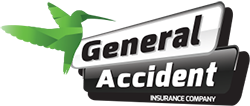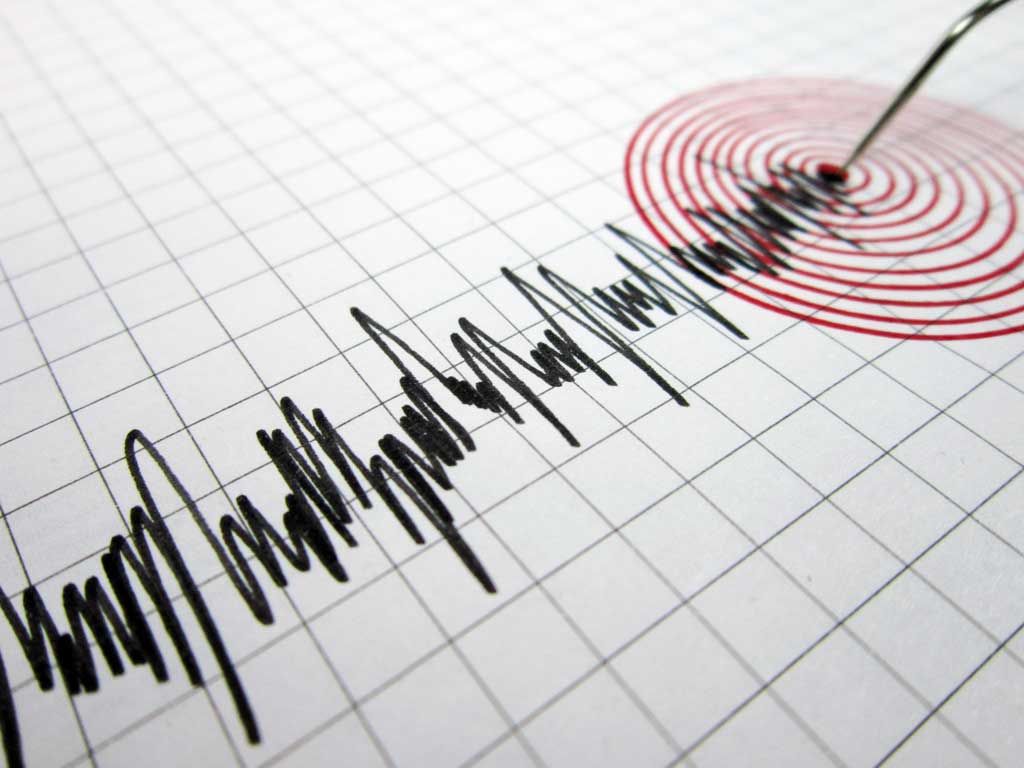Comprehensive Earthquake Safety Guide for Barbados
In regions prone to earthquakes, it’s crucial to be prepared for the unexpected. Understanding how to protect your property, vehicles, and loved ones can make a significant difference in the aftermath of a seismic event. As a trusted general insurance provider, we understand that the best defense against natural disasters is appropriate preparation and education so that our customers are equipped with the knowledge they need to stay safe and secure. Earthquakes are scary but knowing what to do before, during and after can help you and your loved ones stay safe. Here are some essential facts about earthquakes, along with practical advice on how to prepare, what to do during an earthquake, and how to cope after the shaking stops.
Understanding Earthquakes
What is an earthquake?
Earthquakes are caused by the sudden release of energy in the Earth’s crust. The Cambridge Dictionary defines earthquakes as a sudden violent movement of the earth’s surface, sometimes causing great damage. This can happen due to natural processes like the movement of tectonic plates, which are large sections of the Earth’s outer shell. The boundaries where these plates meet are called fault lines. When stress builds up along these fault lines and exceeds the strength of the rocks, it results in a rupture or slip, causing the ground to shake. The intensity of an earthquake is measured using the Richter scale, with higher numbers indicating more powerful quakes. Other causes can include volcanic activity, landslides, and human activities such as mining or reservoir-induced seismicity.
Where Do Earthquakes Occur?
Earthquakes can occur anywhere in the world, but they are most common along tectonic plate boundaries. Scientists recognize between seven and twelve major tectonic plates, plus smaller ones, named after continents (e.g., North American Plate), oceans (e.g., Pacific Plate), and regions (e.g., Caribbean Plate). The main tectonic plate boundaries are: These plates move slowly, at 2 to 15 cm (a few inches) per year, and interact through three types of movements: spreading (divergent), colliding (convergent), and sliding (lateral), all contributing to seismic activity. Regions with active tectonic boundaries are more prone to frequent and intense earthquakes, although earthquakes can also occur in intraplate areas far from active boundaries.
What Are Earthquake Aftershocks?
Aftershocks are smaller tremors that follow the main earthquake. They occur as the Earth’s crust adjusts to the new stress distribution after the initial rupture. While they are typically less powerful than the main quake, aftershocks can still cause significant damage, especially to structures already weakened by the primary earthquake. The frequency and intensity of aftershocks generally decrease over time, but they can continue for days, weeks, or even months after the main quake. It’s important to remain cautious and prepared for these aftershocks as they can impact damaged buildings and infrastructure. While earthquakes can be unpredictable, being prepared can significantly reduce the risks to your property and loved ones.
Now with a better understanding of what earthquakes are, let’s take a look at how to prepare for one.
How to Prepare for an Earthquake
Secure Your Property
- Reinforce Your Home: Ensure that your home is built to withstand seismic activity. This might include retrofitting older structures, reinforcing the foundation, and securing heavy furniture to walls. Ensure your home meets local building codes; check with the Department of Emergency Management.
- Review Your Insurance Policy: Insure your property with GenAc – At GenAc Barbados property insurance provides protection against most risks to property, such as fire, theft and some weather damage. You should also consider adding earthquake coverage to your policy.
- Create an Emergency Kit: Stock up on essentials such as water, non-perishable food, medications, flashlights, batteries, radios, important documents a First-Aid Kit – accessible and functional.
- Secure Heavy Items: Store heavy items on lower shelves. Ensure furniture, water tanks, and gas cylinders are properly secured to your walls and floors. Ensure all family members know how to use this equipment and shut off electricity, gas, and water.
- Develop a Family Plan: Practice earthquake safety drills regularly with your family so everyone knows what to do. Ensure all family members know how to reach each other after an earthquake, especially if phone lines are down.
Prepare Your Vehicle:
- Park Safely: When parking your vehicle, avoid areas that might be vulnerable during an earthquake, such as under bridges or near buildings.
- Emergency Supplies: Keep an emergency kit in your car, including a spare tire, tools, bottled water, and a flashlight.
Business Preparedness
To protect your business from revenue loss and asset damage, implement a comprehensive earthquake preparedness plan. This should include:
- A tailored commercial property insurance policy with GenAc
- Protocols for actions during and after an earthquake
- Evacuation routes and staff meeting locations
- Communication plans for internal and external updates
- Documentation of all business assets
- Emergency contact information
- Supply kits
- A workplace hazard survey
Additionally, contract a structural engineer to inspect your facility to identify and prioritize necessary strengthening measures, such as:
- Installing steel bracing and shear walls
- Reinforcing columns and foundations
- Adhering to safety codes for construction and renovations
- Following building safety codes when constructing a facility or making renovations
- Inspecting non-structural systems, such as air-conditioning, communications, and pollution control systems.
What to do during an earthquake
Drop! Cover! Hold On!
Drop to your hands and knees to stay low and avoid being knocked over. Cover your head and neck with one arm.
- If a sturdy table or desk is nearby, crawl under it for protection.
- If no shelter is available, crawl next to an interior wall, away from windows.
- Remain on your knees, bend over to protect vital organs, and Hold On until the shaking stops.
- If you are outside, move away from buildings, streetlights, and utility wires. Find an open area where nothing can fall on you.
- If you are in a vehicle, Pull Over Safely to a clear area, away from buildings, trees, overpasses, and utility lines. Stay inside the vehicle until the shaking stops.
What to Do After an Earthquake
- Check for Injuries:
- Administer First Aid: Check yourself and others for injuries. Provide first aid if necessary and seek emergency medical assistance for serious injuries.
- Inspect Your Property:
- Check for Damage: Inspect your home for structural damage, gas leaks, and water line breaks. If you suspect any issues, turn off utilities and report them immediately.
- Document the Damage: Take photos and document any damage to your property or vehicle. This will be essential when filing an insurance claim.
- Communicate:
- Reach Out: Let your family and friends know you are safe by using text messages or social media to avoid congesting phone lines.
- Stay Informed: Tune into a transistor radio for emergency updates and instructions from authorities.
- Check Online: Visit the Department of Emergency Management website for the latest information.
- Prepare for Aftershocks:
- Stay Safe: Be ready for additional tremors and avoid landslide-prone areas.
What NOT to Do During and/or After an Earthquake
- Do not run outside during an earthquake, as the exterior of buildings, roofs, and balconies can be hazardous.
- Do not turn the gas back on if you’ve turned it off; wait for the gas company.
- Avoid using matches, lighters, camp stoves, barbecues, or electrical equipment until you confirm there are no gas leaks, as these could ignite leaking gas.
- Use your telephone only for medical or fire emergencies to keep lines open for emergency services. If the phone isn’t working, send someone for help.
- Do not rely on fire-fighters, police, or paramedics, as they may not be available.
- Stay Away from Power Lines: Never touch fallen power lines.
- Keep Streets Clear: Avoid sightseeing and leave the streets open for emergency and rescue vehicles.
- Do Not Move the Injured: Don’t attempt to move seriously injured individuals unless they are at risk of further harm.
Keep the conversation going with your children
After an earthquake, it is crucial to maintain an open dialogue with your children to help them process their emotions and feel supported during this challenging time.
- Encourage your child/children to express their feelings about the earthquake and share any worries or fears they may have. Let them know you are actively listening and genuinely care about their emotions.
- Offer Reassurance
- Help them understand that earthquakes and their effects are temporary and natural, not anyone’s fault. Provide comfort through quality time and extra hugs to reinforce your support and affection.
- Engage your children in age-appropriate tasks, such as helping to organize the emergency kit or participating in clean-up efforts and pass on the knowledge and preparedness required should a disaster such as this happen again.
Being prepared for an earthquake is not just about safeguarding your property and vehicles—it’s about ensuring the safety and well-being of your loved ones.
General Accident is committed to helping you “Future Proof Tomorrow” by providing the coverage and support you need to navigate life’s uncertainties. Remember, we’re here to help you every step of the way.
Stay safe, stay prepared, and know that with the right precautions, you can weather any storm—or shake—with confidence.
For more hazard preparedness tips, browse our blog.
Suggested reading: How To Prepare For a Hurricane in Barbados



